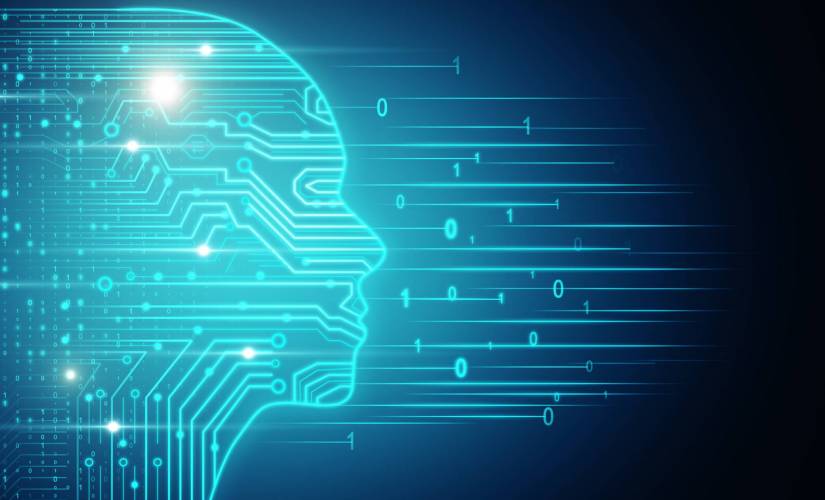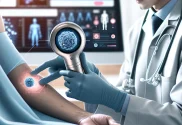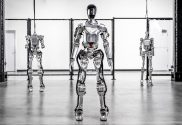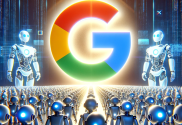Every year, the Future Today Institute publishes a report on the IT trends of the future, which will affect various sectors of the economy. In 2019, the number of innovations mentioned in the forecast almost doubled compared with the previous year. Technologies are being developed faster and faster. In order for your business to keep up, you’ll want to pay attention to the latest IT trends. What innovations in the field of IT will be in demand in 2020 and how to apply the IT trends of the future to business development today?
IT Trends of the Future
1. Artificial Intelligence
Scientists at Stanford University believe that by 2030, all US cities will use artificial intelligence (AI) technology to ensure public safety. In their opinion, the AI will help prevent crimes and even act as an assistant in court proceedings.
Solutions based on AI have already formed the basis of many IT trends of the future: from smart home to speech recognition, face recognition, and even imitation of emotions. Elements of artificial intelligence – machine and deep learning are now actively used in robotics. And researchers at the Future Today Institute suggest that soon, artificial intelligence will become part of all modern innovations, aiding family dentists, analytics in different spheres, etc, simplifying data collection and its processing.
2. Voice and visual product search
According to a recent forecast, by 2021, the leading trading companies will begin to introduce a visual and voice search for goods. Using AI technology, large online stores can better understand the desires and interests of consumers. Analysts predict that as a result of innovations, the revenue of trading platforms will increase by 30%.
3. Individual approach to the online buyer
Innovative industry in the concept of artificial intelligence – learning in real time. Using this technology, an online store, for example, will be able to display products individually for each user, depending on their behavior on the site. Thanks to technology, it will be possible to adjust the site models in real time using a continuous stream of data on visitors’ transactions.
Innovations in the Transport Industry
1. Logistics automation
Analysts believe that the automation of cargo delivery is a very relevant topic not only for carriers but also for large online stores. When retail sales grow from 9 to 30 percent, companies are faced with the question of how flexible they can be in the delivery of goods. The demand for transport management systems of the supply chain will grow in the coming years. Cloud services for logistics automation will significantly optimize the delivery of goods.
2. Unmanned cars
Cars with autopilot is another trend of the future (based on the concept of artificial intelligence). Tesla already allows drivers to turn on the autopilot in their cars, provided they keep an eye on the road. Recently, Uber launched about a hundred autonomous cars on the streets of Pittsburgh. However, while the innovation is only being tested, a company employee is constantly in the car to monitor the work of the algorithm and security.
According to the forecast, by 2030, half of the cars will be equipped with an autopilot function. And in a note for Forbes, analysts even speculate on how insurance companies will evaluate risks, based on the growing number of unmanned cars. It is quite obvious that cars on autopilot will soon become quite commonplace.
Mobile Solutions Trends
1. Chatbots
Experts predict that by 2021, the largest enterprises will spend more on chatbots than on creating mobile applications, and the chatbots market will amount to $3.5 billion. Chatbots themselves will acquire human traits – first, they will learn to communicate (as Siri already does), and then recognize and mimic human emotions.
We are waiting for the so-called era of post-applications – to the fore come virtual assistants created using AI technology. Experts believe that in a couple of years, chatbots will penetrate into all areas of communication.
2. Internet X
In 1990, John Romki created the world’s first Internet-connected item, connecting his toaster to the network. Since then, the number of devices managed via the Internet has grown significantly and has formed the so-called Internet of Things or IoT. Now there are about 9 billion smart devices operated via the Internet in the world: mobile devices, production equipment, elements of a smart home, etc.
In parallel with the growth in the number of devices, LPWA is developing – low-power long-range networks as an alternative to Wi-Fi. LPWA will allow the signal to overcome long distances and obstacles. The development of this technology, along with the growing number of smart devices, will push the development of the Internet of Things. And it, in turn, evolves into the Internet of X, that is, into a concept that applies to almost everything.
3. Pocket education
New technologies are appearing more and more often, in order to keep up, specialists in all spheres will need to periodically update their knowledge. Given the modern pace of life, online learning will gain momentum. Moreover, education will have to be as accessible as possible, so futurists suggest a boom in the creation of mobile learning applications.
User Experience
User experience helps to distinguish the company from competitors. Design based on user experience will continue to develop in parallel with the latest technologies. Traditional interfaces are transformed into voice or even neural, the so-called “brain-computer” and will also be actively used in robotics. The task of high-quality user experience will remain unchanged – to make technological innovations as convenient and understandable for a person as possible.
Big Data
Analysis of large amounts of data is already actively used by companies. With the growing amount of information and the development of AI, not only Big Data will develop, but also the field of application of this technology. Opportunities for analyzing large amounts of information will be applied in all areas. Big Data will be one of the tools of Internet marketing. This technology allows you to quickly process huge amounts of data based on consumer behavior.





